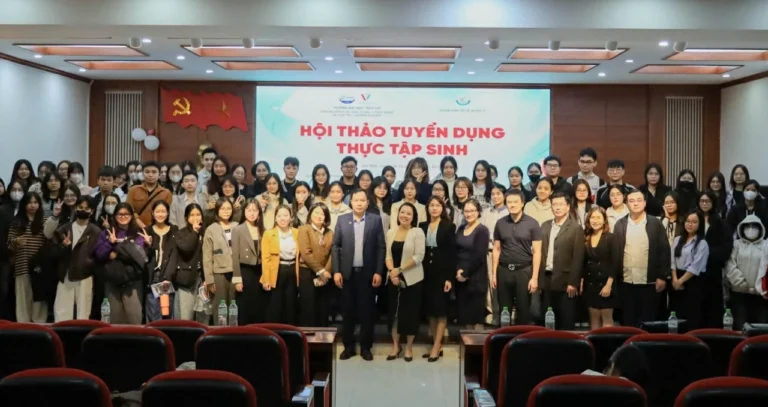With an increasingly integrated economy, Vietnam is focusing on attracting overseas talent, especially experienced Vietnamese professionals in high-tech fields like electronics components and industry demands.. This strategy not only presents numerous opportunities for businesses but also poses significant challenges in shaping the future workforce.
Why is labor import important?
The concept of "labor importation" is generally understood as attracting foreign workers to meet domestic production needs. However, in Vietnam, this concept extends to bringing talented Vietnamese professionals back from abroad. This is crucial as the electronics components and semiconductor industries demand a highly skilled workforce, including engineers, designers, and IT specialists. By 2025, Vietnam is projected to need about 10,000 semiconductor engineers annually, yet the current labor force meets only around 20% of this demand.

Labor importation, or attracting skilled Vietnamese workers from abroad, addresses the shortage of technical expertise and experience in the electronics and semiconductor sectors. These returning professionals, armed with skills and knowledge from developed countries, can help elevate production standards and drive technological advancements in Vietnam. According to the latest report, semiconductor production in Vietnam in 2023 experienced slight growth despite supply chain challenges. This highlights the critical role of quality labor in sustaining business growth.
Promising Development Opportunities for the Electronic Components and Semiconductor Industry in Vietnam
With rapid development, Vietnam is now the third-largest exporter of electronics components in ASEAN and ranks 12th globally, boasting an impressive growth rate of 23.8% annually from 2016 to 2020. This solid foundation has encouraged major electronics corporations like Samsung, Foxconn, and Intel to continue expanding their operations in Vietnam. However, the shortage of high-quality human resources remains a challenge. To meet production needs and compete with regional players, labor importation has become a popular strategy among companies to build a specialized and skilled workforce.
Challenges from the Labor Import Strategy
Although labor importation offers many benefits, Vietnam also faces challenges. The issue of "brain drain"—where young talent opts to remain overseas rather than return home—remains a difficult problem to address. To counter this, favorable policies and support programs for returning workers need to be established. Additionally, work culture and technical standards in Vietnam differ from those in developed countries, requiring businesses to implement retraining programs and create an environment that allows imported talent to adapt and maximize their potential.
Human Resources Services GLA HR is a convenient human resources solution

In this context, reputable human resource providers like GLA HR serve as a bridge for Vietnamese workers abroad to find attractive job opportunities at home. Beyond supplying skilled labor, GLA HR assists in developing sustainable career paths, helping returnees integrate into the work culture at manufacturing facilities and meet the high demands of the semiconductor and electronics components sectors.
Opportunity to import Vietnamese labor
The Vietnamese labor importation from abroad is not just a solution to the labor shortage but also an opportunity for Vietnam to emerge as a global hub for electronics manufacturing. This is the moment for Vietnam to harness the expertise of skilled talent from overseas, elevating the electronics and semiconductor industries to new heights.
Labor importation is not merely a business strategy; it is a vision of a future where Vietnam has some of the most talented engineers and skilled employees, capable of competing head-to-head with technological powerhouses worldwide.
Join our Zalo group for HOT JOB opportunities: https://zalo.me/g/osiedw964


